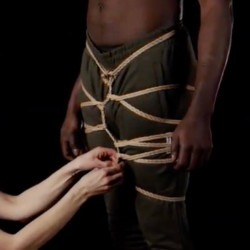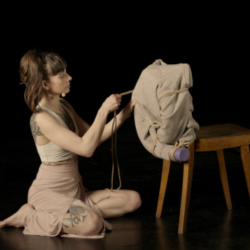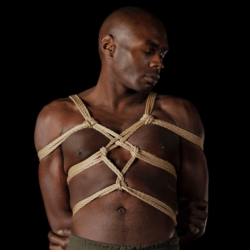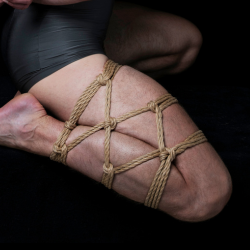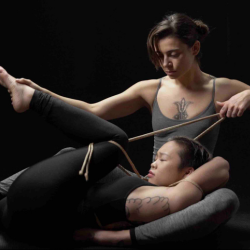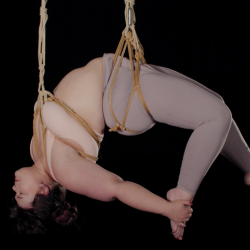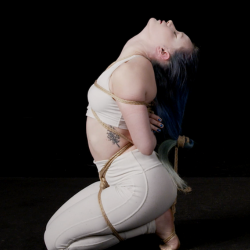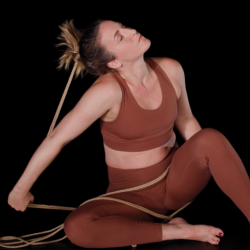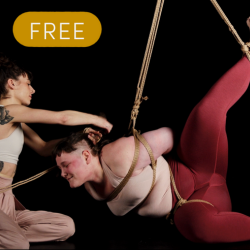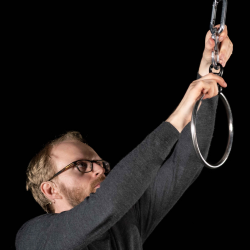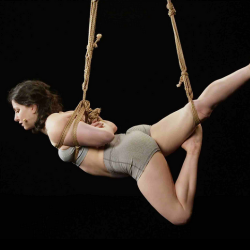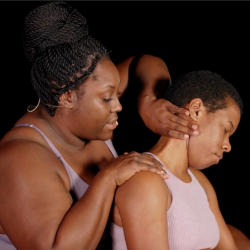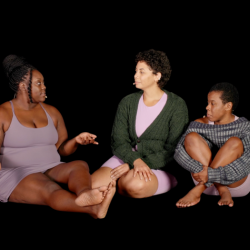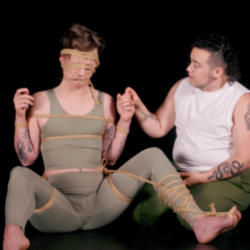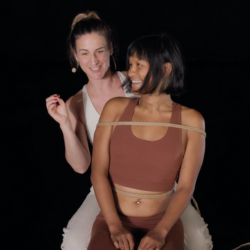BEST PRACTICE STATEMENT
At Shibari Study, we have been asked a number of times about people teaching the content that is on our site, and it feels appropriate that we should address this directly with a statement around our position and beliefs on this topic.
While we support the use of Shibari Study resources as inspiration, or to support peer-led learning environments, we can only advocate for the quality of instruction as taught on our platform. The Shibari Study alumni all have extensive experience teaching in person, and have spent many years developing their skills, methods and curriculum. For some skills, we believe these to be generic, ‘open source’ if you will, such as a simple single-column tie, or the concepts of reverse or forward tension. However, there is separate consideration for “proprietary” harnesses or techniques, such as those developed and named by individual instructors.
Although we cannot control people teaching content they have learned from Shibari Study, we would ask that the below considerations are made by anyone who is considering doing so:
Credit - It is important to us that both ourselves and our instructors are credited for the hard work they have put into developing their techniques and harnesses that you see on Shibari Study. This is a reflection of the extensive time and effort required to create and advance their practice.
Permission - We strongly advocate that you not teach proprietary material that you learned on Shibari Study or elsewhere without the permission of the person who developed that material. This permission is usually sought via a personal relationship, such as the traditional Student/Teacher relationship and is most effective when permission is granted from Teacher to Student. This ensures that the Teacher is satisfied with the quality and capability of the student to pass on that knowledge. Permission should not be sought via unsolicited means e.g. direct messages on social media.
Profit - To profit from someone else's intellectual property is unethical. Profiting without permission is tantamount to theft and should not be considered acceptable for anyone within the rope community.
Transparency - We strongly believe in transparency of the credentials for anyone teaching rope, as this helps learners make an informed choice. If you are teaching someone else’s harness, be open about whether you have permission to teach it, whether you learned it in person, privately, over a period of many lessons, as part of a one-off workshop, or if you just learned it on the internet last week. This is true of all levels of “educator”, whether teaching a weekend-long intensive, or simply offering some advice at a local rope jam.
Competency - This final point is two-fold. Teaching is a skill in itself, and someone who is good at rope is not necessarily good at teaching rope. Simply having the competency to tie something is not confirmation that you are able to teach it. Secondly, it is important that we consider our competency to tie something as designed. It’s possible to follow the steps but not understand the technique, which may lead to unknowingly teaching unsafe variations of the original tie. This is supported by the ideology of being given permission to teach a tie before doing so, as it provides some assurances around the understanding of all aspects, not just the steps required.
We hope that this statement and the below FAQ provide some guidance in making an informed choice around the use of Shibari Study content within in-person events. Shibari Study is committed to supporting the wider rope community and if you have any doubts or questions regarding this policy or wish to seek our consent to teach material from our site, please contact us on support@shibaristudy.com.
Is it OK for people to teach their friends another person's named harness?
If you have permission, then certainly. If not, it’s up to the individual to decide if they have the competency to do so, and to give relevant credit and transparency around their capability. Knowing your limits is an important part of the educator's journey.
Is it OK to teach a peer group at a free rope share event?
As above, if you have permission, without a doubt. If not, do you have the capability and transparency? Also, are you considerate of the impact this will have on your community? Teaching a sub-par version of a tie can lead to engrained habitual mistakes that are difficult to correct and can negatively impact your community.
Is it OK for someone to pay you for a private lesson on Shibari Study content?
With permission, yes. Without permission this becomes an ethical question of whether you should profit from the development of someone else's work. At this stage, it becomes more important to be given permission to teach, otherwise it is possible you may infringe upon someone's intellectual property.
Is it OK to get paid to teach a group class on Shibari Study content?
At this level permission is really of utmost importance. Teaching a paid group class or at a convention, in which the content you are teaching is fundamentally not your own, is unethical.
This policy does not, however, exclude any enforcement action being taken if we believe there is an infringement upon Shibari Study’s copyrighted material or the Intellectual Property of Shibari Study or any of our instructors.


